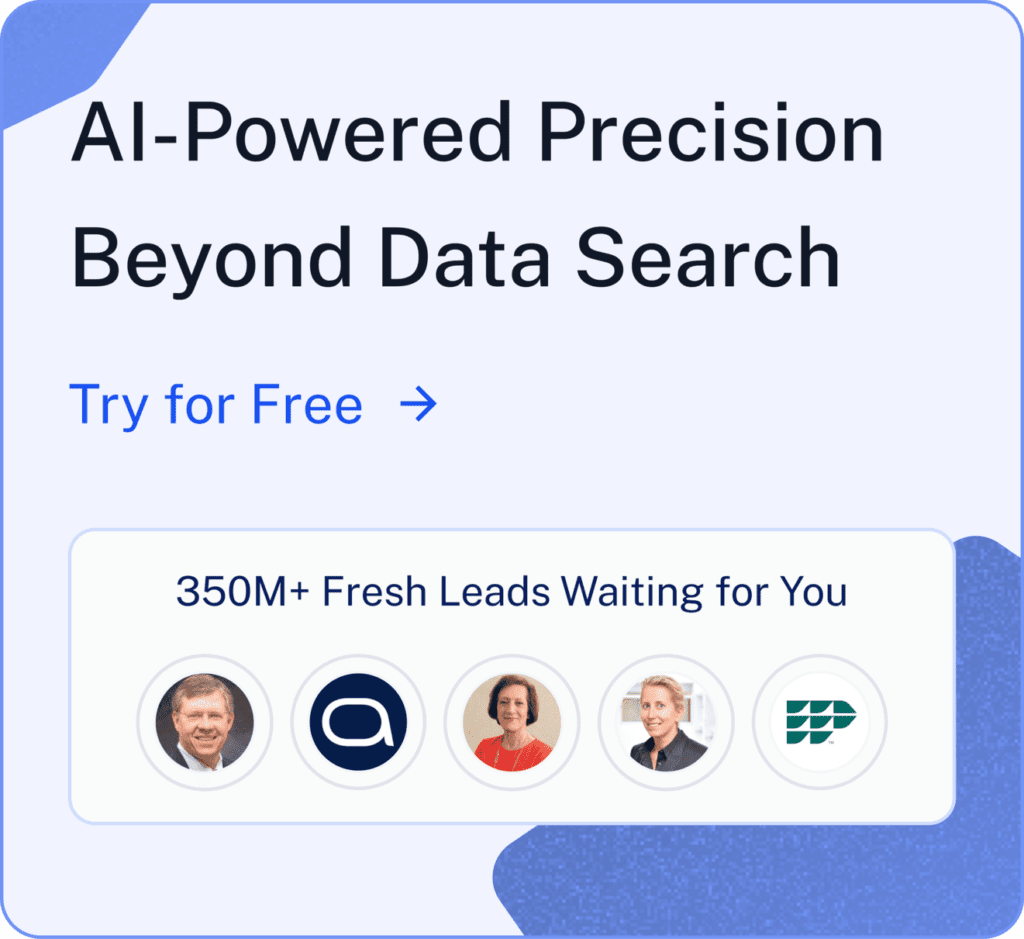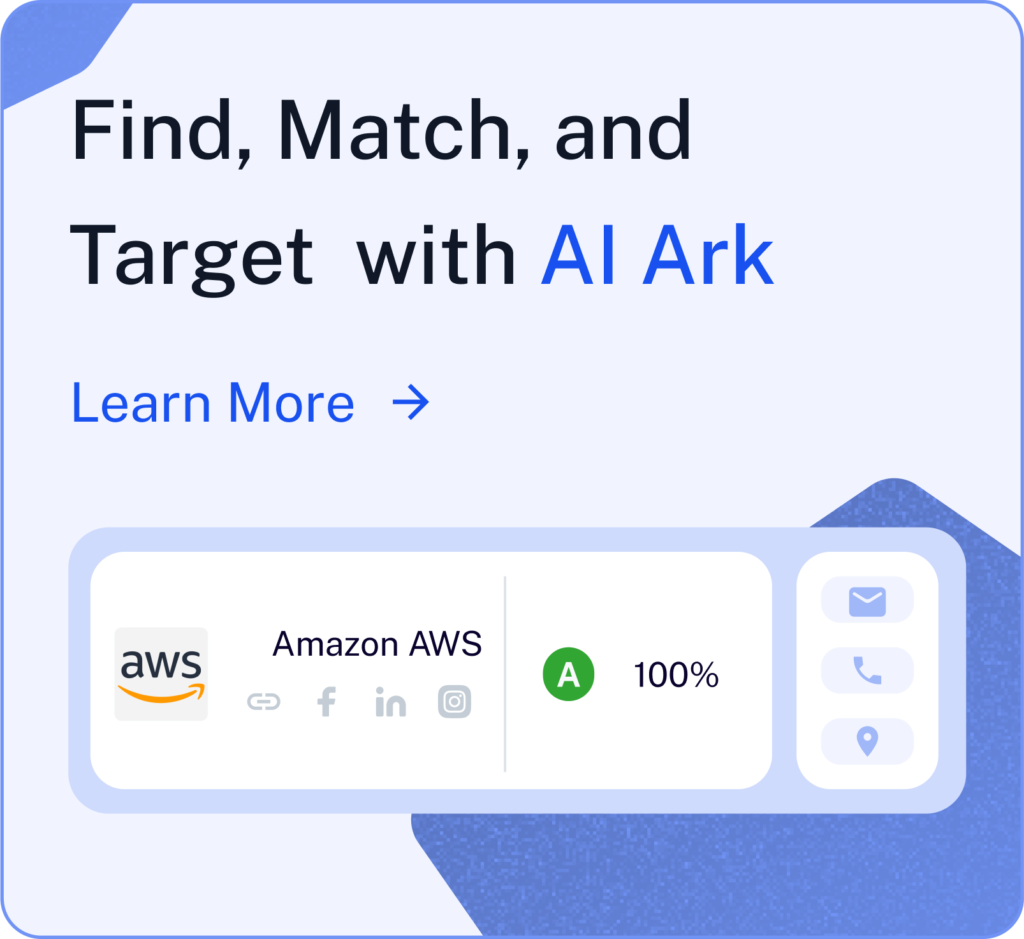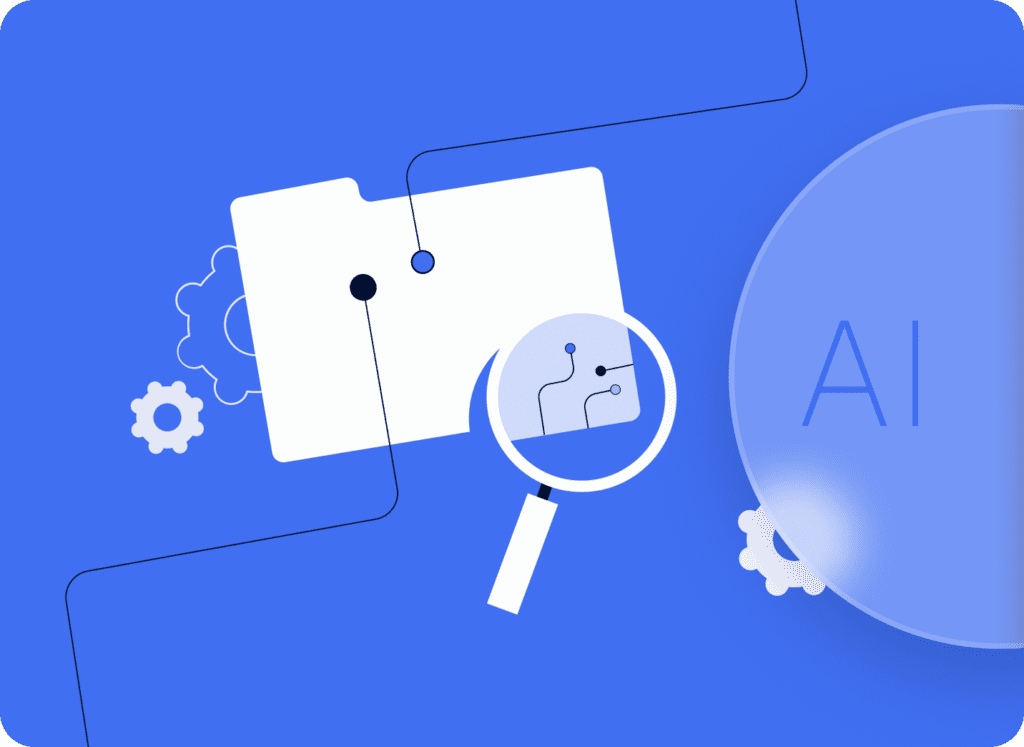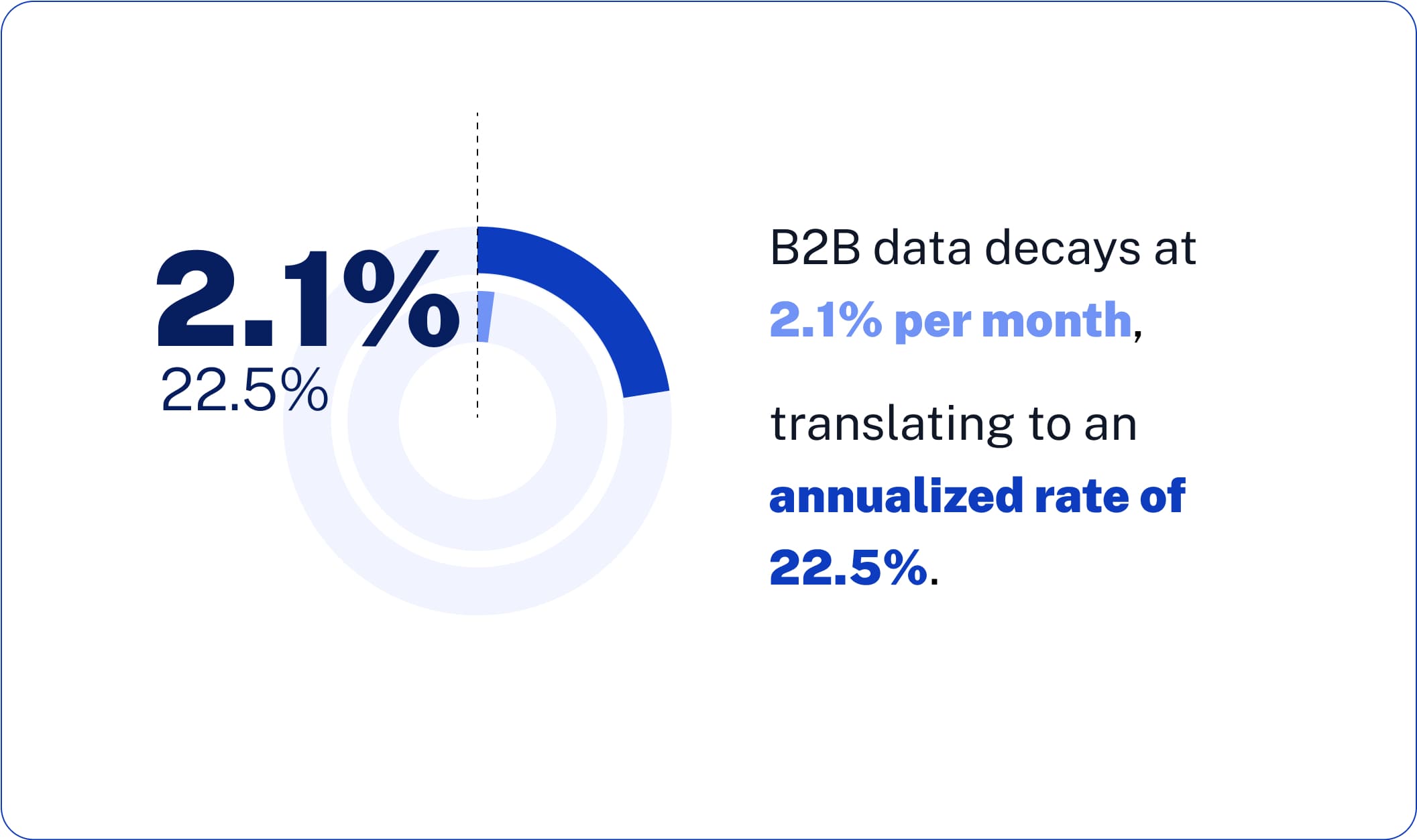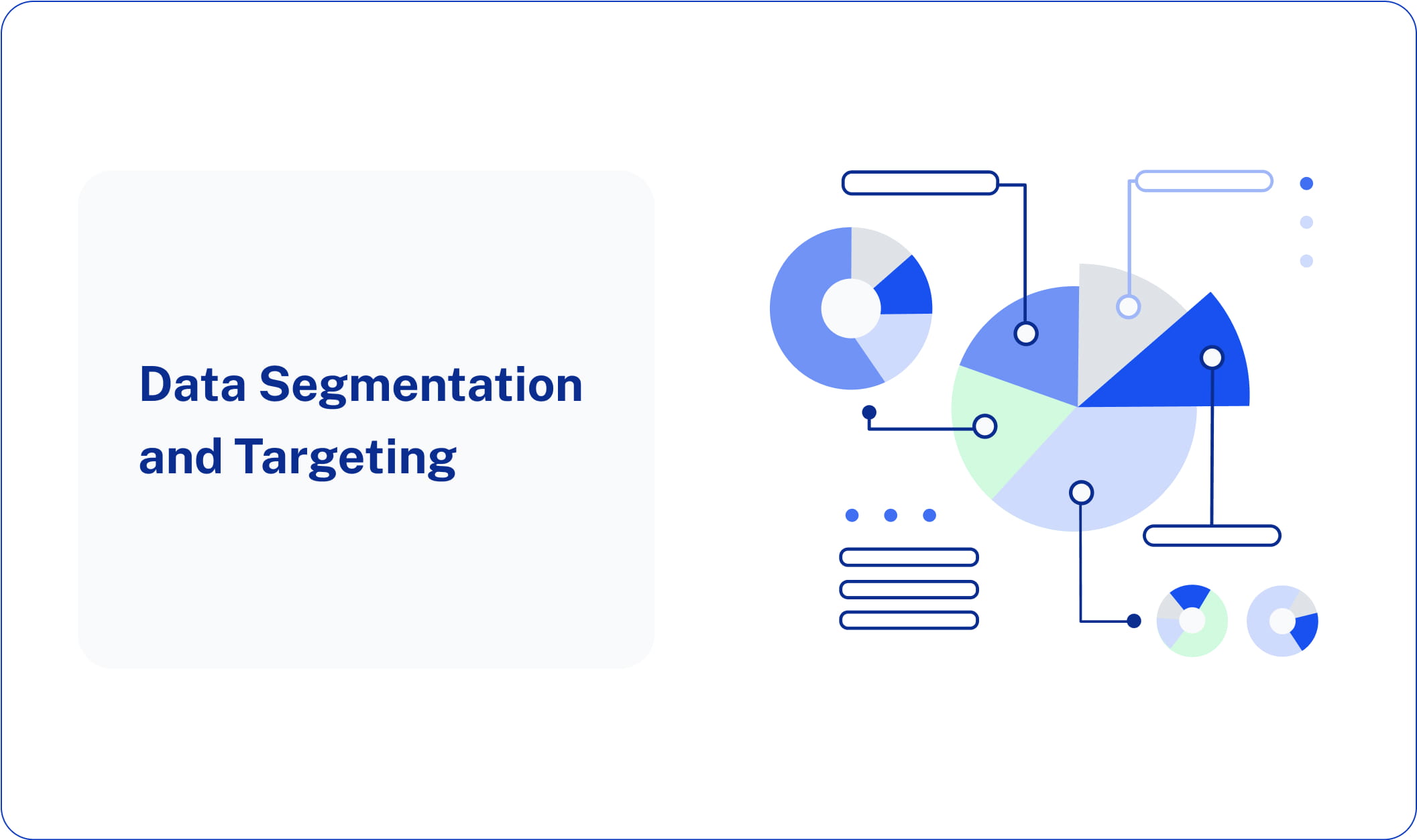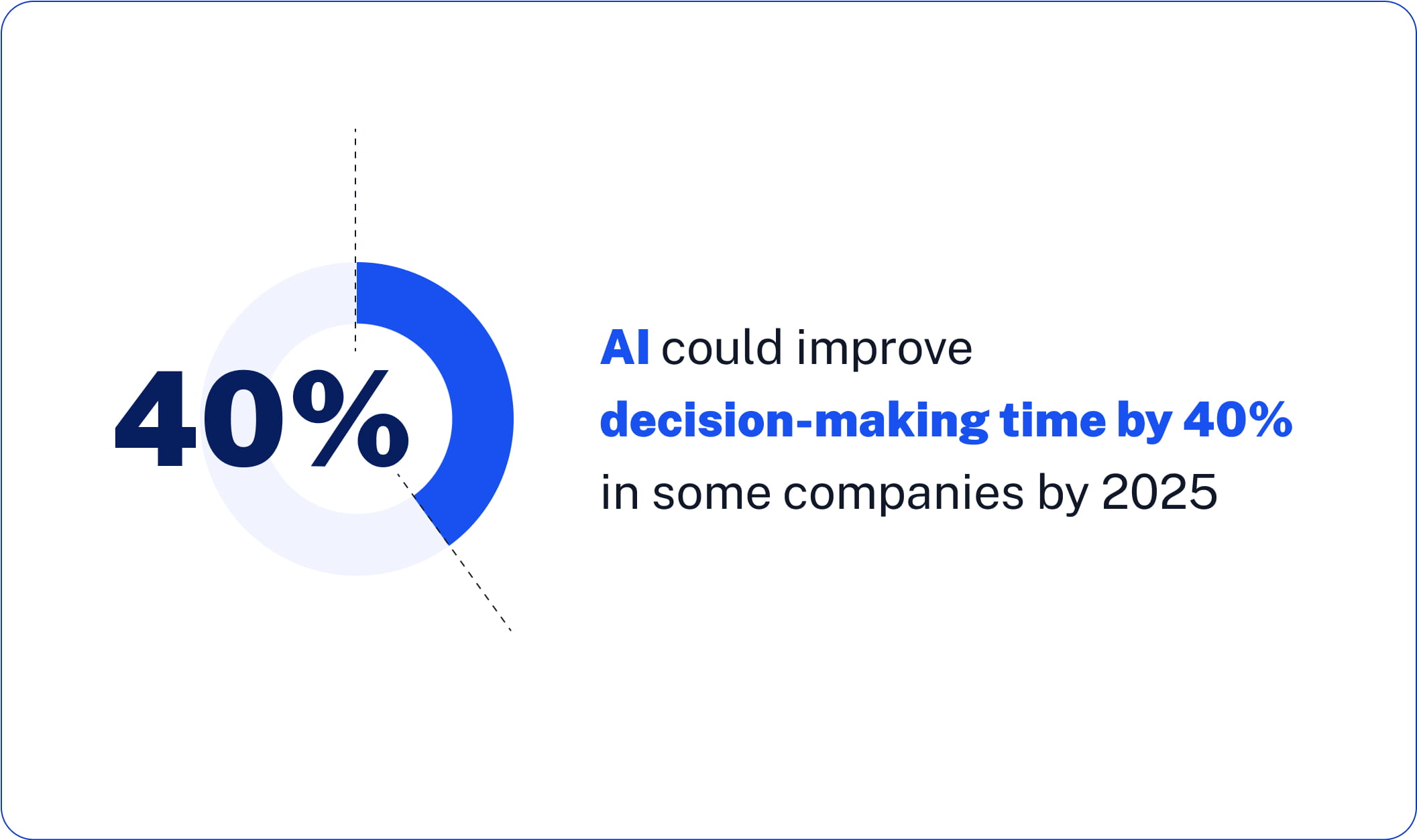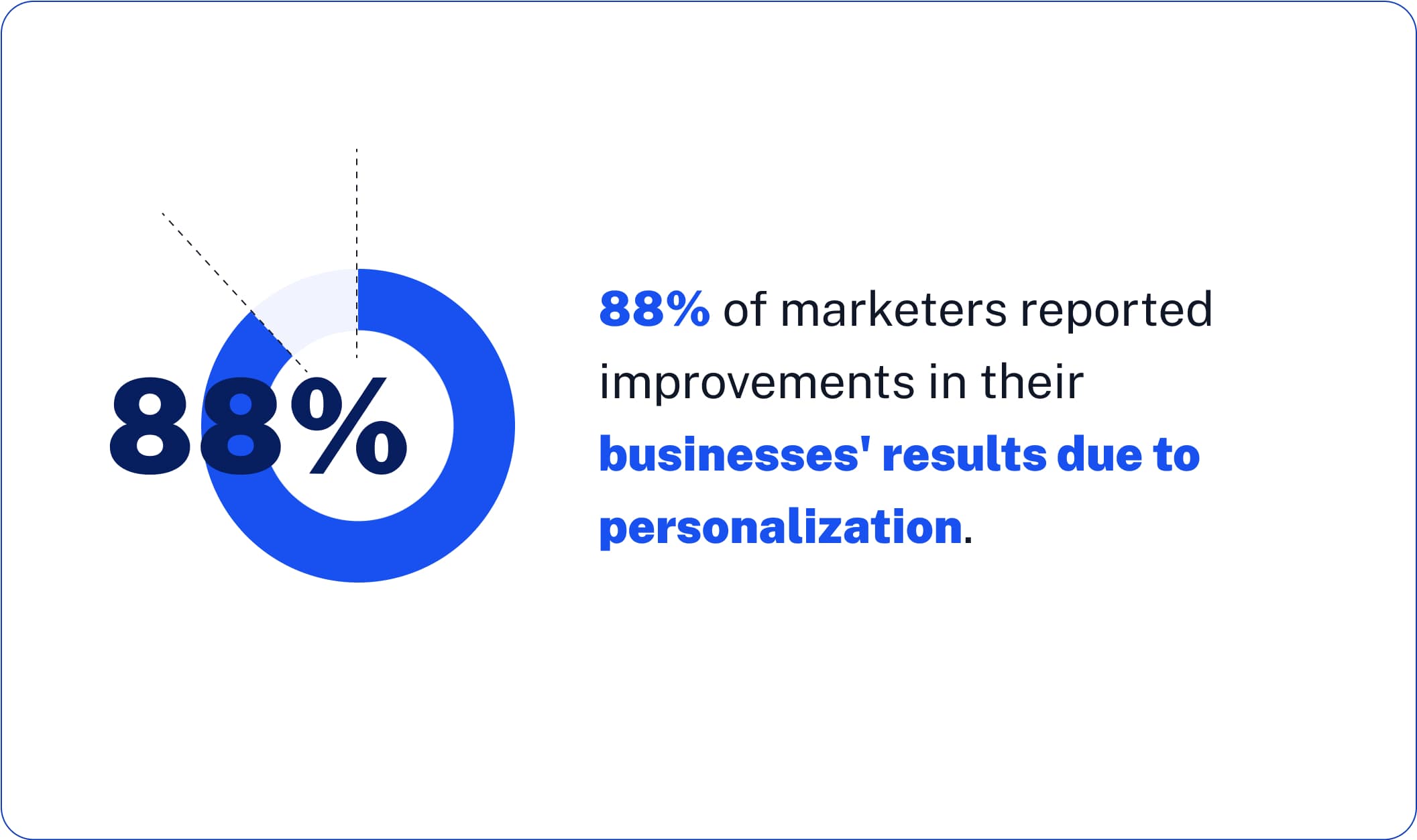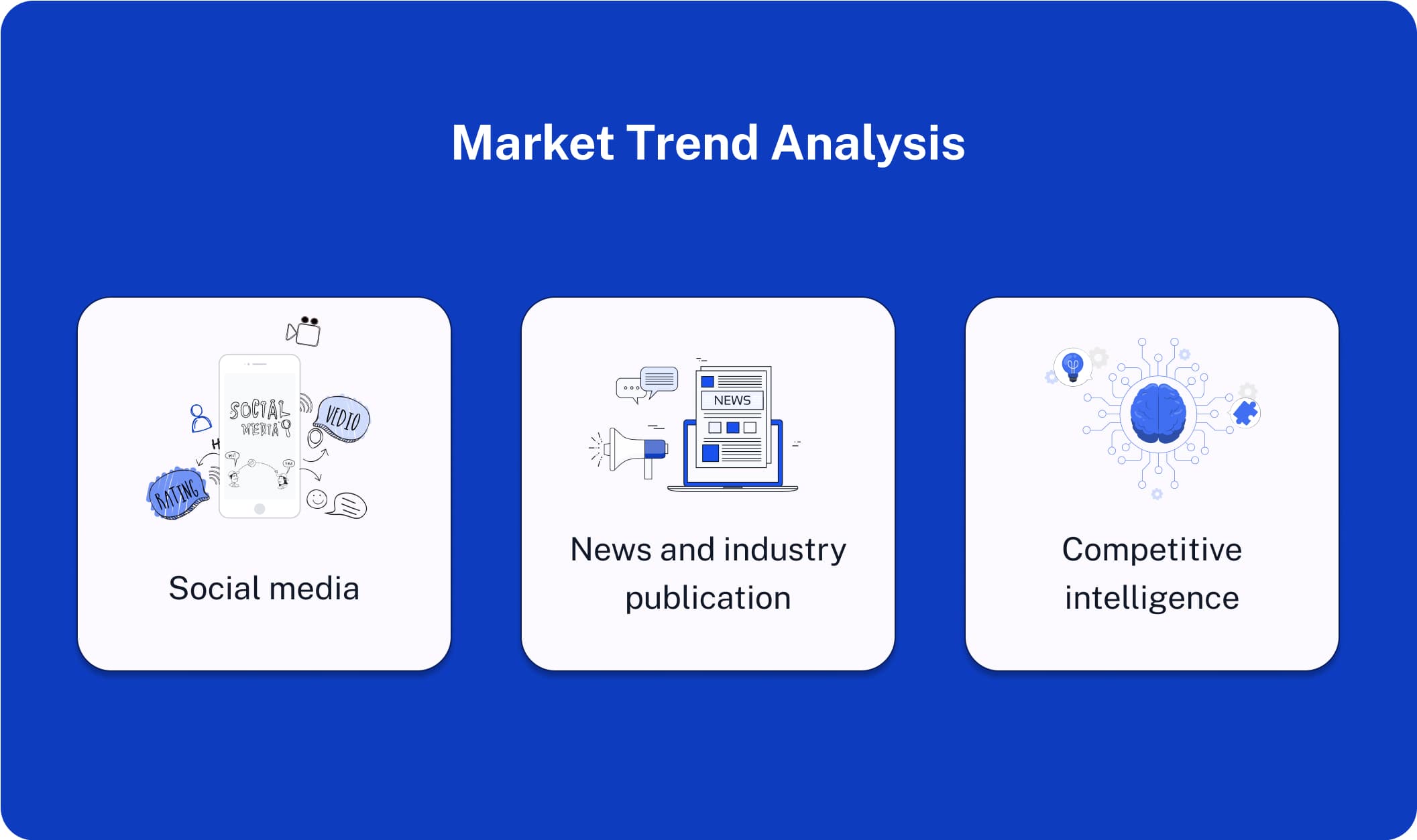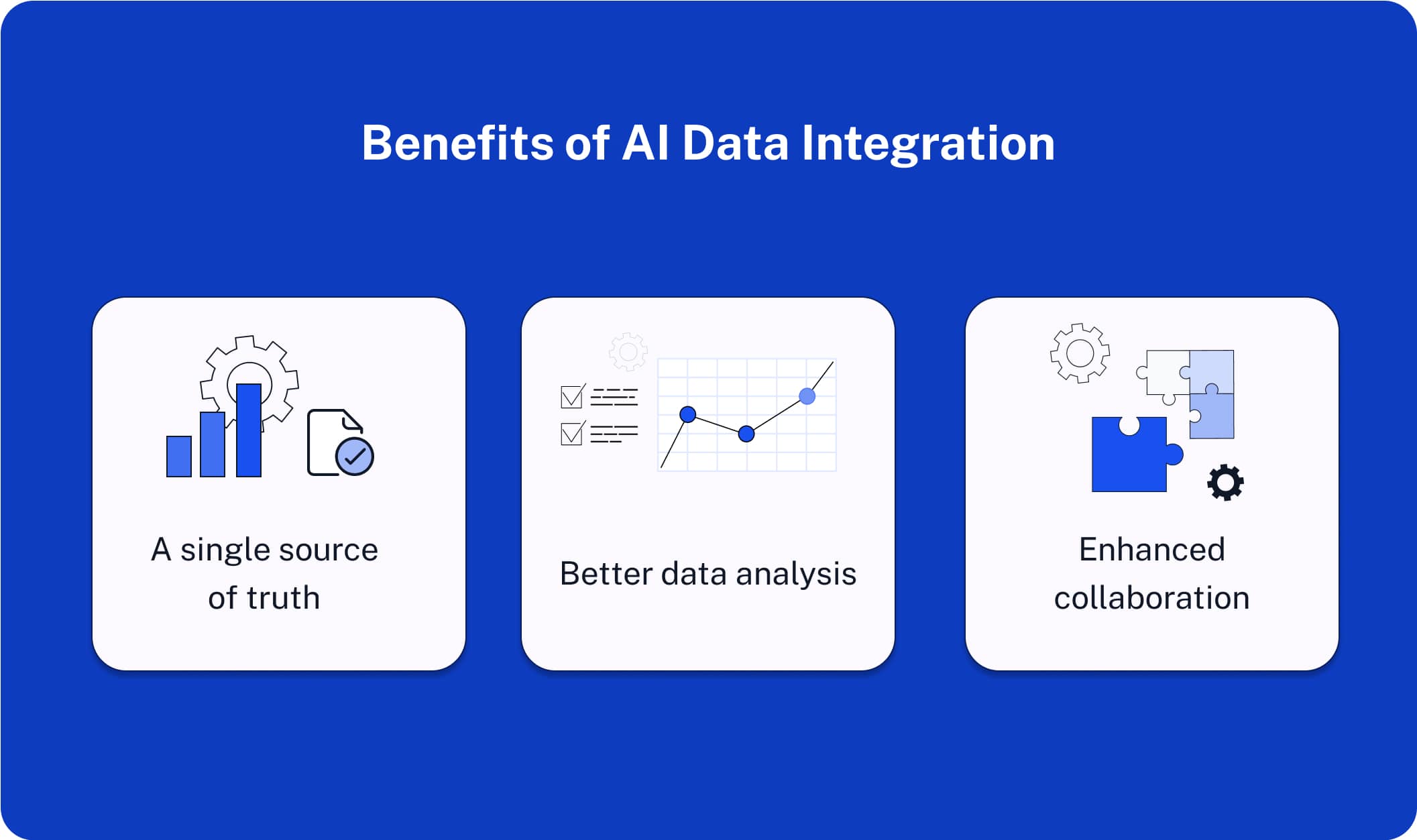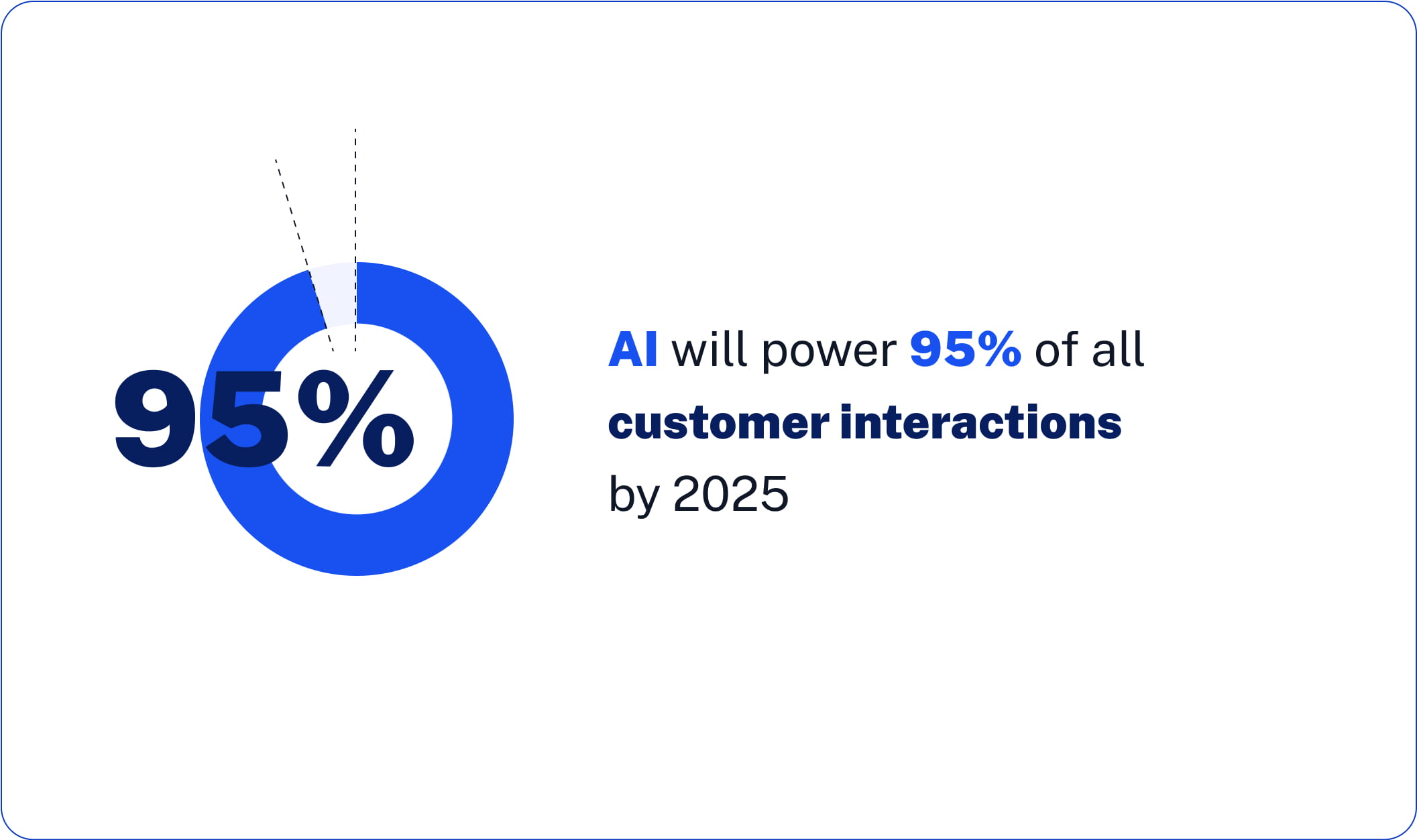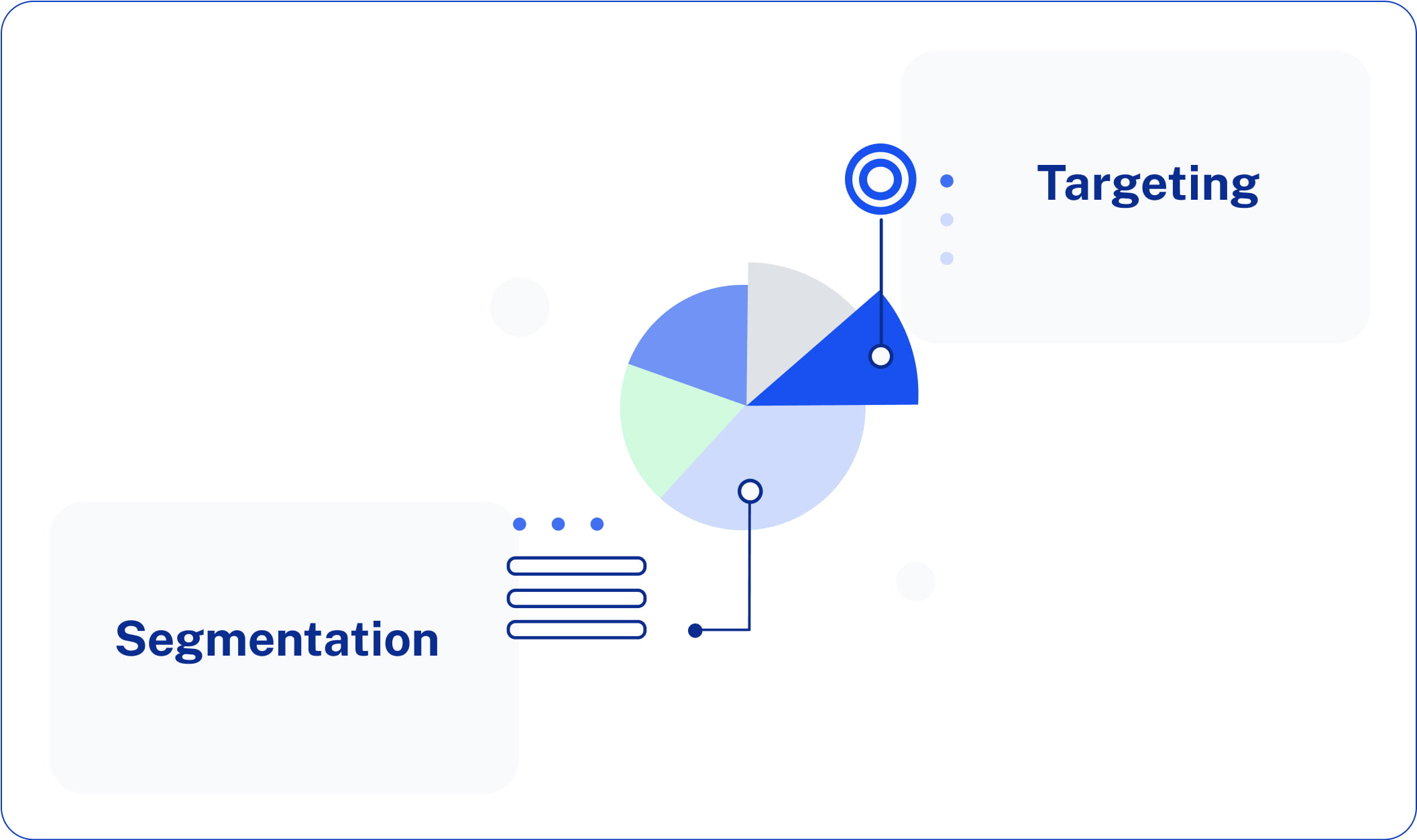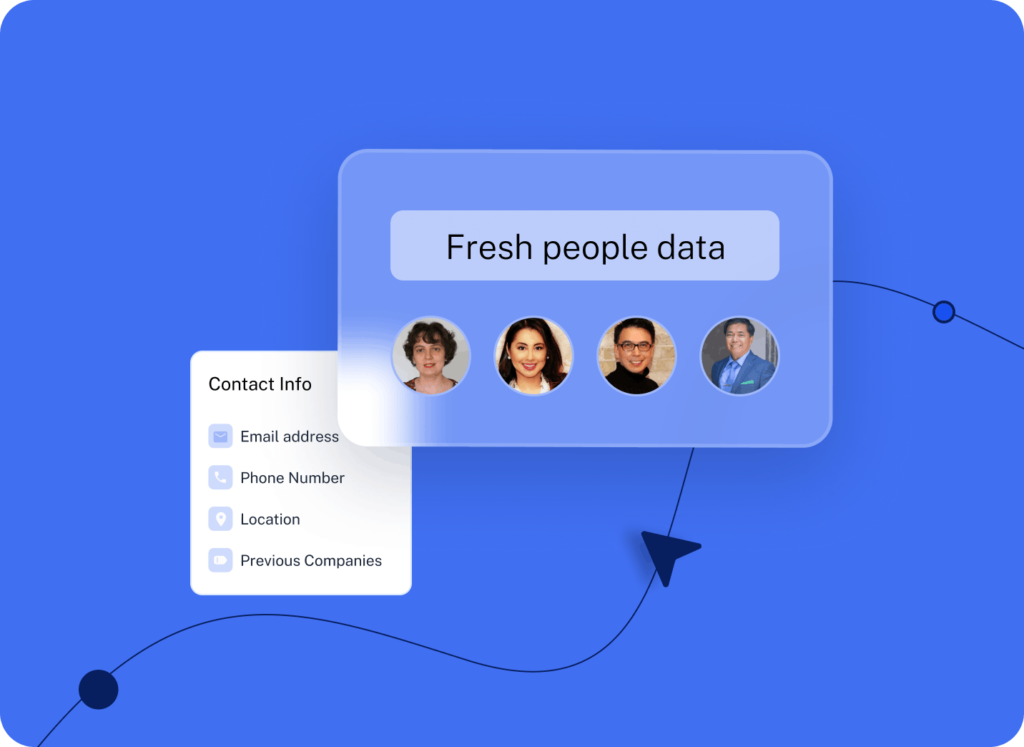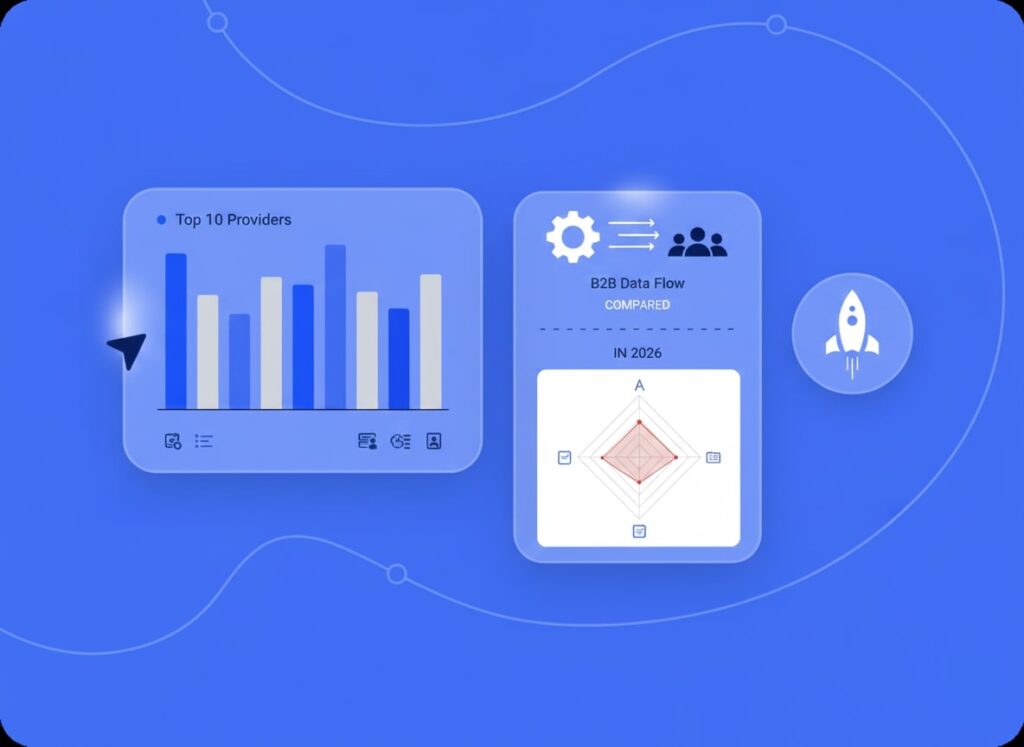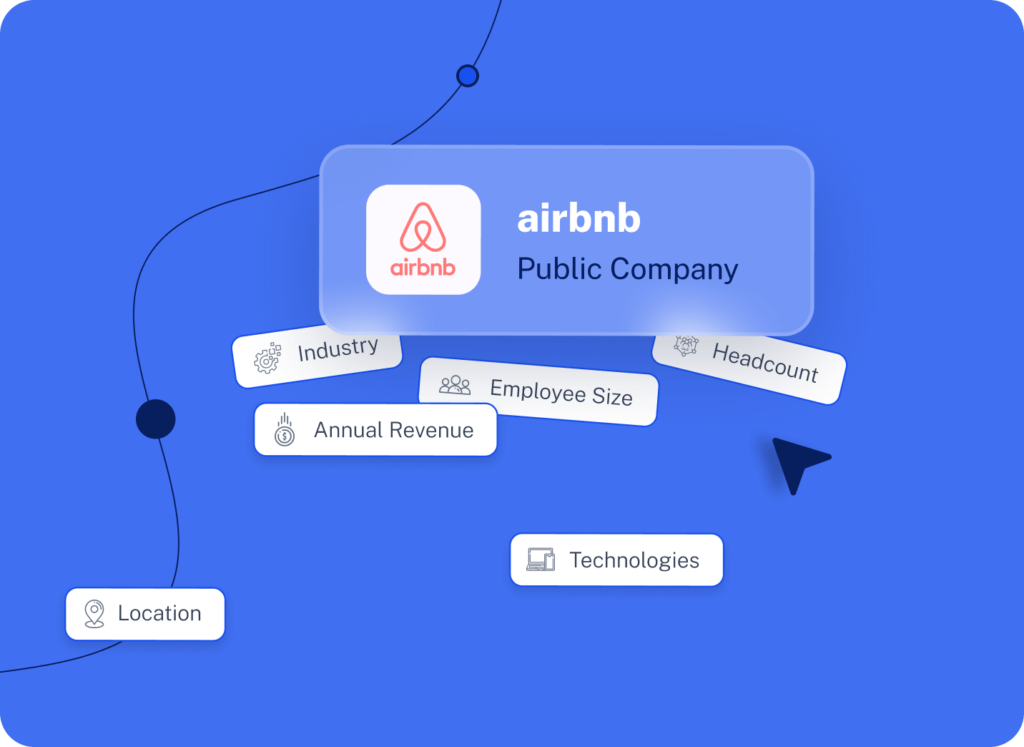Artificial intelligence (AI) will no longer be just a catchphrase but a powerful transformative force in the business world by 2024. The projected B2B data market size of $3.91 billion clearly indicates the indispensable role of data in the B2B industry.
Imagine working with corporate data that is not only accurate and up-to-date but also incredibly insightful and simple to handle.
This is the reality that artificial intelligence delivers to B2B data.
This article will show you how to use AI to optimize your B2B data and gain access to previously unattainable advanced insights.
We’ll look at how AI transforms data analysis and management, opening the door to more intelligent business choices and unmatched expansion.
This article provides a guide to maximizing AI’s potential in your B2B data strategy, regardless of your experience with data or your goal as a business professional.
If you want to use data more efficiently, then you need to read this article!
AI in B2B Data?
With the global AI market expected to grow to around $1 trillion by 2028, it shows that B2B data is the foundation of every business-to-business transaction.
B2B data includes details like past purchases, website usage patterns, market trends, and consumer contact information.
Here’s the thing, though: raw data has great value but needs to be refined to shine.
Think of data like an unpolished diamond.
Not much can be done with it, right? And this is where AI enters the picture.
This polishing transforms your B2B data from a rough prospect list into a glittering diamond of actionable insights. AI can analyze massive data sets to identify patterns and trends the human eye might overlook.
Data optimization leads to better decision-making, more focused marketing efforts, and, eventually, a notable increase in return on investment.
B2B Data Challenges That AI Can Solve
Data is vital in the B2B sector, yet conventional approaches frequently bury important insights. AI can close this gap.
Let us examine how AI addresses typical B2B data problems, such as segmentation, targeting, sales forecasting, and customer churn prediction. With AI, your B2B data may become a potent asset that powers focused marketing efforts, improves decision-making, and eventually grows your company.
1. Data Decay and Inaccuracy
Consider constructing a skyscraper on a moving sand foundation.
Seems like a useless endeavor?
That’s basically what occurs when your B2B data deteriorates and becomes inaccurate.
According to studies, B2B data ages at a monthly pace of 2.1% or an annualized rate of 22.5%. This out-of-date information results in resource waste, unsuccessful marketing initiatives, and lost opportunities.
This is where AI becomes your data superhero.
Why?
Because AI algorithms can continuously verify and enhance your data.
This entails procedures such as:
- Automated contact verification: AI can search trustworthy databases and the internet to update and validate information such as email addresses, phone numbers, and job titles.
- Data standardization and cleaning: Artificial Intelligence can find and eliminate discrepancies in your data, guaranteeing consistency and enabling precise analysis.
- Real-time data enrichment: AI can crawl trade journals, social media sites, and corporate directories to obtain important information about the market, competitors, and company news. Your current profiles are then automatically updated with this new data, keeping them pertinent and up to date.
AI ensures that your decisions are based on the most recent and correct information by continuously renewing your B2B data, providing a strong foundation for your company’s growth.
Benefits of using AI in Data Decay and Inaccuracy
Conventional B2B data management techniques are prone to deterioration and imprecision over time.
Here’s how AI approaches this problem and yields major advantages:
- Enhanced data quality: AI’s ongoing enrichment and validation procedures guarantee that your data is current and correct. As a result, there will be less money lost on out-of-date information and, in the end, better decisions made with a solid basis.
- Improved campaign performance: Marketing initiatives supported by precise data are more likely to connect with their intended audience. As a result, they yield a better return on investment (ROI) and higher engagement and conversion rates.
- Reduced costs: Eliminating erroneous data from your B2B system can save you time and money. Correcting inaccuracies will take less time, and you’ll have more time to use accurate data for strategic objectives.
- Increased client satisfaction: Using accurate data, you may personalize client interactions and give them a better experience. As a result, customer satisfaction rises, and better relationships are fostered. Notably, 80% of clients are more likely to use a service that provides a personalized experience.
2. Data Duplication
Duplicate records are the clutter of the B2B data world. They can waste your sales team’s valuable time, inflate your database’s size, and skew marketing campaign outcomes.
Imagine making the same email pitch to the same person again. That’s not a good way to establish a lasting rapport.
Your secret weapon against redundant data may be an AI-powered deduplication tool.
These programs may distinguish between duplicate entries based on various factors, including name, spelling, and company variation.
How AI handles duplication:
- Intelligent matching: AI systems can analyze information other than names and email addresses. They can accurately detect duplicates by comparing phone numbers, company websites, or industry codes.
- Fuzzy matching: Using “fuzzy matching” approaches, AI may consider typos, abbreviations, and other inconsistencies. This ensures that entries that differ even a small amount are recognized and marked for inspection.
- Smart merging: AI may intelligently combine duplicates into a single, error-free record once duplicates are found. This procedure creates a more accurate and efficient database by removing redundancy and retaining all pertinent information.
AI removes duplicates to ensure your B2B data is clean, well-organized, and prepared for the best possible use.
Benefits of Using AI in Data Duplication
Duplicate entries can bloat your B2B database, exaggerate its size, and distort the outcomes of your marketing campaigns.
Tools for deduplication driven by AI have several advantages.
- Enhanced productivity: Artificial Intelligence streamlines and unifies redundant data, giving your staff more time to concentrate on important assignments.
- Enhanced data usability: When a database is organized and well-structured, it is simpler to examine data, create reports, and obtain insightful knowledge. This results in better data usability and quicker access to important information.
- Enhanced targeting: Once duplicate records have been removed, you can target your marketing more precisely. This allows you to be confident that the correct people are receiving the proper message, which can improve your marketing ROI and increase conversion rates.
- Decreased costs: By removing duplicates, your B2B data requires less storage space, which could result in savings on data storage solutions.
3. Segmentation and Targeting
If you were to yell your marketing message into a packed room, it wouldn’t reach everyone. The same applies to general B2B marketing initiatives. Delivering the right message to the right audience is critical, and AI-powered segmentation can help.
Conventional segmentation could group clients into groups based on industry or basic demographics. AI takes it one step further.
AI analyzes a tonne of B2B data using machine learning methods, including:
- Behavioral patterns: AI can decipher user behavior and preferences by examining website activity, past purchases, and content engagement.
- Firmographic data: Industry, location, and company size can be considered to make more precise divisions.
- Psychographic insights: AI can reveal a company’s decision-making process and ideals by examining social media interactions and brand sentiment.
Benefits of AI Segmentation
AI can generate highly focused segments with this deep data analysis.
This enables you to:
- Customize marketing messages: Provide engaging marketing material that addresses every target niche’s unique requirements and problems.
- Optimize campaign performance: Maximize ROI for Every Segment by Customizing Your Marketing Channels and Budget Allocation to Optimise Campaign Performance.
- Boost engagement and conversion rates: You may get higher conversion rates and greater engagement by communicating with your audience through relevant communications.
Using AI segmentation, you can ensure that your marketing efforts are laser-focused and that the appropriate message is sent at the right time to the right audience.
4. Lead Scoring
Leads are not all created equal. While some need further care, others are attractive and ready to be purchased. The difficult part is finding the most promising leads to concentrate your sales team’s efforts on.
Luckily, companies that use AI for lead scoring and sales forecasting have experienced a 10–20% rise in leads and opportunities.
AI-driven lead scoring models use behavioral analytics and historical data analysis to assign a score to each lead.
Scoring factors are as follows:
- Website activity: White paper downloaders and product page visitors are probably more engaged leads.
- Demographic data: Factors such as budget, industry, and company size can indicate a lead’s potential suitability for your service.
- Social media engagement: A lead’s degree of interest can be inferred from their interactions with your brand on social media.
Benefits of AI lead scoring
By examining these variables, AI clearly shows which leads have the highest conversion rates.
This enables you to:
- Prioritize sales efforts: Concentrate your team’s efforts on high-scoring leads to maximize their time and close transactions more quickly.
- Nurture early-stage leads: Create focused initiatives to advance leads with lower scores down the sales funnel by nurturing them.
- Improve sales forecasting: Using predictive lead scoring algorithms, you can more accurately project future sales success and allocate resources more effectively.
AI-powered lead scoring guarantees that your sales staff focuses on the most promising prospects, significantly increasing sales productivity and conversion rates.
5. Sales Forecasting
Envision possessing a crystal ball that might show your sales performance in the future. AI can offer highly accurate sales projections, which is a better alternative.
Using AI for sales forecasting looks like this:
- Historical sales data: Artificial intelligence can examine past sales data to spot patterns in client behavior and seasonal variations.
- Market intelligence: AI is capable of collecting and analyzing data about the market, such as economic indicators, competitor activity, and industry trends.
- Lead scoring and pipeline analysis: AI can forecast the chance that leads will become paying clients by combining information from lead-scoring models with your sales pipeline.
Benefits of AI Sales Forecasting
AI creates sales projections based on these findings that are:
- Data-driven and objective: AI projections are based on actual data analysis, which gives a sharper picture of future sales performance than intuition or conjecture.
- Proactive planning: You can optimize performance by proactively adjusting resource allocation, marketing campaigns, and sales tactics based on accurate forecasts.
- Better decision-making: AI enables you to make well-informed decisions that can greatly influence your bottom line by foreseeing possible problems or changes in the market.
With AI, decision-making time could be improved by 40% in some companies by 2025. With these AI-powered accurate sales projections, you can confidently navigate the ever-shifting B2B market and ensure your sales staff is ready for the future.
6. Customer Churn Prediction
For every B2B company, losing a devoted client is an expensive blow.
The pace at which clients discontinue doing business with you, or customer churn, can greatly affect your revenue stream. Fortunately, AI can assist you in identifying potential churning clients before it’s too late.
Here’s how AI addresses lost customers:
- Analyzing customer interactions: AI can spot trends suggestive of churn risk by examining data points such as purchase history, the volume of support tickets, and customer service questions.
- Engagement monitoring: AI can identify warning signs such as decreased website activity, decreased social media engagement, or a lack of response to marketing activities.
- Sentiment analysis: AI may examine social media comments, support chats, and customer reviews to determine customer sentiment and spot any complaints.
Benefits of AI Churn Prediction
AI identifies at-risk clients, enabling you to:
- Implement retention strategies: Create focused retention campaigns to answer client concerns, resolve problems, and encourage repeat business.
- Enhance interactions with customers: Proactively reaching out to clients who are in danger shows them that you appreciate their business and build better bonds.
- Optimize customer experience: To reduce attrition and raise satisfaction levels, pinpoint areas where your current customer experience is lacking and make the necessary adjustments.
By enabling proactive client retention strategies, AI-powered churn prediction can lower attrition rates and increase customer lifetime value.
7. Personalized Marketing
In a research, 88% of marketers stated that their companies’ performance has improved due to their personalization initiatives. Thus, broadcasting generic commercial messages to a large audience is no longer effective.
Today’s B2B customers demand individualized experiences tailored to their unique requirements and tastes. AI-driven content personalization can help in this situation.
This is how AI makes your marketing more targeted:
- Behavioral targeting: AI can determine the preferences and interests of certain customers by examining their past interactions and website behavior.
- Dynamic content creation: AI can produce tailored marketing materials for individual customer segments, including email offers or website landing pages.
- Recommendation engines: AI can power these tools, which make recommendations for pertinent goods, services, or content based on each user’s unique profile.
Benefits of AI Personalized Marketing
AI-powered personalized marketing has the following important benefits:
- Enhanced interaction: Consumers are more inclined to interact with customized content to meet their requirements and preferences.
- Increased conversion rates: Personalized communications connect with prospects more strongly, resulting in increased rates of lead-to-customer conversion.
- Improved customer relationships: Personalized communication helps you establish a deeper rapport with your audience by fostering a sense of connection.
Using AI, you can develop a customized marketing strategy that distinguishes you from the competition and produces tangible economic outcomes.
8. Compliance and Data Privacy
The General Data Protection Regulation, GDPR, and other data privacy laws are critical in today’s data-driven environment. However, maintaining adherence to these rules might be difficult. AI can help you navigate the constantly changing world of data privacy.
AI simplifies data privacy compliance in the following ways:
- Automated data mapping: AI can automatically locate and map every piece of consumer data in your systems, giving you a clear understanding of what information you have and where it is kept.
- Compliance checks: AI-driven solutions can monitor your data handling procedures and identify any possible compliance issues.
- Automation of Data Subject Access Requests (DSARs): AI can speed up the handling of DSARs and respond to customer requests for data access or deletion.
Benefits of AI for Data Privacy
The following benefits come from using AI for data privacy compliance:
- Minimize compliance risks: By proactively identifying and addressing possible compliance concerns, AI helps you lower the chance of paying large fines or penalties.
- Gain customer trust: Showcasing your dedication to data privacy may win over customers’ trust and improve your company’s perception.
- Optimize data management: By increasing data management efficiency with AI automation, resources can be allocated to other vital duties.
AI streamlines your data management procedures while enabling you to maintain compliance with data protection laws.
9. Market Trend Analysis
In the world of business-to-business trade, staying on top of developments in the industry demands ongoing awareness.
This covers the actions of rival businesses, new technological developments, and changing consumer tastes. With AI, you can instantly evaluate enormous volumes of data and gain insightful knowledge about the dynamic market environment.
Using AI to market analysis looks like this:
- Social media listening: AI can track popular subjects, brand sentiment, and rival comments on social media sites to gather useful market data.
- News and industry publication analysis: To keep you updated on the newest advancements and market movements, AI can search through news stories, industry reports, and press releases.
- Competitive intelligence gathering: AI can examine rivals’ websites, advertising campaigns, and product releases to comprehend their tactics and predict their next actions.
Benefits of AI Market Trend Analysis
Utilizing AI to analyze markets allows you to:
- Identify new opportunities: Take advantage of the first opportunities to profit from new market trends and provide creative solutions to satisfy changing client demands.
- Make decisions based on data: Real-time market analytics can support your strategic decisions and help you stay one step ahead of the competition.
- Reduce the risks: By proactively identifying potential market concerns, you can minimize their influence on your organization and prepare contingency measures.
With AI’s help, you can confidently navigate the ever-changing B2B landscape and make well-informed decisions to accelerate your company’s growth.
10. Data Integration
B2B data frequently lives in silos among many departments and platforms. It is challenging to comprehensively understand your clients in this fragmented data world, which limits your capacity to make wise judgments.
These data silos can be connected by AI, enabling smooth integration and the development of a single data ecosystem.
The following is how AI approaches data integration:
- Data mapping and standardization: AI can locate and map data points between different systems, guaranteeing uniform formats and promoting smooth integration.
- Data cleansing and deduplication: AI may clean and deduplicate data during integration, eliminating redundant and inconsistent information to produce a more accurate result.
- Real-time data synchronization: Artificial intelligence can provide real-time synchronization across various data sources, guaranteeing that your B2B data is accurate and up to date.
Benefits of AI Data Integration
You gain from integrating AI with your B2B data:
- A single source of truth: This will give you a cohesive picture of your consumers throughout your company and eliminate the confusion caused by disparate data sources.
- Better data analysis: More thorough analysis made possible by consolidated data results in deeper customer insights and more informed decision-making.
- Enhanced collaboration: Unified data promotes a data-driven culture within your company and facilitates easy departmental communication.
With the use of AI, you can eliminate data silos and fully utilize your B2B data, empowering you to make more informed decisions based on a comprehensive understanding of both your clients and your business.
11. Customer Insights and Behavior Analysis
Success in the B2B industry requires a thorough understanding of your clients. However, extracting useful information from intricate B2B data might be difficult.
AI can use its deep learning skills to mine your data for hidden patterns and trends in client behavior, giving you a better understanding of your audience.
Here’s how AI approaches behavior analysis and consumer insights:
- Consumer segmentation analysis: AI may identify discrete consumer segments with particular demands and preferences by analyzing customer purchase history, online usage, and engagement patterns.
- Predictive behavior modeling: AI can forecast future consumer behavior based on past data, allowing you to foresee their requirements and modify your products appropriately.
- Sentiment analysis: Artificial intelligence can examine social media interactions, support chats, and customer reviews to ascertain client sentiment and pinpoint areas needing development.
Benefits of AI Customer Insights
By utilizing AI to gain insights into your clientele, you can:
- Personalize customer interactions: Create focused advertising campaigns, product suggestions, and customer service plans depending on each client’s unique needs and behaviors.
- Optimize the customer journey: To create a more satisfying and enjoyable customer experience, pinpoint and resolve pain areas along the way.
- Boost customer lifetime value: By better understanding their demands, you can forge closer bonds with them and promote repeat business.
With AI powering 95% of all customer interactions by 2025, AI may help you better understand your B2B clientele, which will help you develop enduring client relationships and improve your strategy.
12. Efficient Data Management
Keeping track of B2B data can be laborious and prone to mistakes. Data entry, classification, and tagging are tasks that might slow down and reduce your team’s output.
AI can automate these repetitive data administration duties, freeing your human resources to work on more strategic projects.
This is how AI approaches data management:
- Automated data entry and cleaning: By extracting data from various sources, such as emails, websites, and PDFs, AI can reduce the amount of data entry that needs to be done by hand and ensure correctness.
- Smart data categorization: AI can classify data points automatically according to pre-established rules or learn to classify data over time, saving your team significant effort.
- Intelligent data tagging: AI can examine the data content and automatically add pertinent tags, facilitating retrieval and search for future use.
Benefits of AI Data Management
AI-powered data management task automation allows you to:
- Boost data accuracy: Automation guarantees consistent data quality and reduces human mistakes.
- Increased team productivity: Your group can concentrate on more strategic tasks like developing strategies and analyzing customers.
- Lower operational costs: Automating repetitive jobs streamlines processes and decreases the total cost of data management.
By enabling you to handle your B2B data more effectively, artificial intelligence (AI) frees up your team’s precious time and resources for strategic initiatives.
Data Enrichment With AI
Data is frequently referred to be the “new oil” in the digital era, but like crude oil, raw data must be refined to reveal its full potential.
In the context of B2B data, AI functions as an advanced refinery, transforming simple contact information into a comprehensive, useful asset that informs strategic decision-making.
Data enrichment is using AI to improve the quality and richness of data, turning it from basic database entries into a rich tapestry of insights that may inform company strategy.
AI’s Role in Data Enrichment
Thanks to advancements in AI technology, businesses can now significantly increase the value of their B2B data beyond its initial state, opening up new opportunities for data enrichment.
Machine learning algorithms, natural language processing, and semantic analysis sort through data to find and fill in gaps with insightful information. This could involve determining the organization’s size, identifying the main decision-makers, assessing sentiment from social media interactions, and determining industry trends.
To ensure that interactions are based on a thorough understanding of the context and nuances that the data reflects and on data alone, this enriched data becomes an extremely useful tool for outreach and personalization.
Segmentation for Targeted Marketing
AI-powered data enrichment transforms audience segmentation for organizations, going beyond simple information addition. AI makes it possible to categorize data dynamically based on factors like past purchases and behavioral trends.
This makes it possible to create highly targeted marketing programs whose language is specifically tailored to each segment’s needs, interests, and buying stage. As a result, marketing initiatives have a greater impact on the target demographic, leading to a notable rise in engagement and conversion rates.
Predictive Insights for Strategic Planning
Predictiveness is arguably the most revolutionary feature of AI-driven data enrichment. By evaluating the enriched data, AI models provide insights into industry trends, identify new business prospects, and predict customer behavior.
With the help of these forecasts, companies may change their approach from reactive to proactive, carefully matching their products and marketing initiatives to the dynamics of the future market. This strategic advantage allows Companies to lead their particular marketplaces and not merely traverse them.
Measuring the Impact of AI on B2B Data
Several key performance indicators (KPIs) that measure efficiency, effectiveness, and strategic insight can be used to quantify the impact of AI on B2B data management and consumption.
Predictive analytics enables companies to engage with and retain consumers who pose a risk proactively. Similarly, lead conversion rates rise as more precise lead scoring and prioritization, made possible by AI-enhanced data, ensure that sales efforts are directed in the areas where they will probably have the biggest effect.
Putting money into AI data enrichment could revolutionize your business-to-business endeavors.
However, how is the impact measured?
Here are some examples of how AI improves important business metrics:
- Marketing Return on Investment is Growing: A recent study found that companies that integrate AI analytics into their marketing plans get a 10% improvement in return on investment over those that do not. This proves the worth of your AI investment by giving your marketing ROI a noticeable boost.
- Customer Churn Rate Reduction: Enriched data can help you better understand your consumers and tailor your services to their demands. In addition to fostering client relationships, this lowers customer churn, a major cost-saving measure for any B2B company.
- Lead Conversion Rate Surge: Prospective clients respond better to targeted outreach based on richer data. Offerings that specifically solve their problems will be presented to them, increasing the likelihood that leads will become paying clients.
These are a few instances of how AI data enrichment may improve your business’s bottom line and B2B data. By monitoring critical indicators, you can measure the worth of artificial intelligence and show a return on investment.
Why Choose AI Ark
Online platforms provide opportunities to establish new connections and stay in touch with current clients. But living in a digital age also brings abundant information and intense competition for attention.
Therefore, B2B organizations need to prioritize turning their data into insights that can be implemented to drive growth amidst this complexity.
Here’s where B2B AI shines.
Companies like AI Ark can help businesses realize the full value of their B2B data with AI-powered solutions. Accurately identifying the most important data helps organizations make data-driven decisions, maximize their marketing budgets, and eventually experience long-term success.
Are you prepared to use AI to unleash the potential of your B2B data?
Reach out to AI Ark today and discover how we can transform your data into a strategic advantage.
